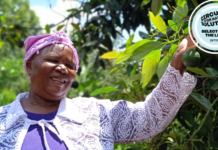The problems associated with the spread of the coronavirus (COVID-2019) affects each of us personally, and many countries economy as well.
This week Israel practically closed its borders against people entry from many countries. It is difficult to leave Israel and almost impossible to enter; two weeks mandatory isolation for all incoming!
Other countries took drastic steps as well; it demonstrates the scale of the problem and the efforts to cope with the complex situation.
The damage to the Israeli economy is enormous, but the fear of the spread of the virus and its influence is greater.
In a few weeks/months, everything “will return to normal”. But it will take years before the economic damage will be covered and forgotten.
In a similar way, quarantine pests affect agriculture. The effect is even greater if there is no effective control for that pest, e.g. many species of fruit flies.
The most visible effect is the
export ban on fresh produce.
In the case of quarantine pests, isolation is forced upon the “afflicted”
states and may last for decades. Hence, its long-term economic impact is
enormous.
Keeping in mind how the world responds to the coronavirus problem, let us analyze the long-term impact of quarantine pests on the country’s economy.
THE NATIONAL PROBLEM
Export Ban OR fear of a coming Export Ban on fresh produce due to fruit flies.
THE IMPACT ON…
Farmers who export
- * Shortening the harvest season.
- * Early harvest of premature produce.
- * Marketing smaller fruits (less weight) due to early harvesting.
- * Marketing fruits of low quality.
- * Inability to market – Ready to Eat, which gets a higher price.
- * Compromising on the markets and price (lower prices).
- * A decrease in revenue.
- * Increased spending on fruit fly control and post-harvest.
- * 10% to 80% yield loss due to fruit flies.
- * The additional decrease in yield and its quality.
- * The difficulty of finding buyers for the produce.
- * Uncertain about the future of exports and revenues.
- * Inability and no desire to invest in modern technologies and know-how.
- * Continue to use cheap and ineffective technologies and methods.
- * Inability to pay for professional and skilled workers.
- * Reducing employee salaries.
- * Abandoning farmers’ rural areas and immigration to the main cities and other countries.
- * Damage to the farmer’s reputation.
- * The additional decrease in revenue.
- * Inability to finance education and professional development for children.
- Poverty and hanger.
- Business sector (exporters, distributors, traders, investors, input suppliers)
- * Selling low quality produce, for example, unripe and sometimes infested fruits.
- * Irregularity in the supply of produce.
- * Damage to the reputation of the exporter.
- * Uncertainty about the future of exports.
- * Reduce exposure to the risk of the export ban.
- * Restrict investment to small amounts and short-term impact.
- * Exit (or not entering) markets where there is no export.
- * Rolling the business risk to the farmer.
- * Diminished revenue.
- * Additional reduction of the exposure to the market or complete exit.
Governmental sector
- * Interception of infested fruits.
- * Damage to the reputation of the state, exporters, and farmers.
- * Decrease/halt of agricultural exports.
- * A decrease in tax revenue.
- * A decrease in foreign currency influx and reserve.
- * Inability to invest in national projects and infrastructure for the benefit of farmers.
- * The necessity to increase financial support for farmers.
- * The necessity to import food.
- * Greater difficulty in raising investments from international agencies to upgrade the agricultural sector.
- * Damage to the country’s economy.
- * Slowing economic growth.
THE CURRENT NATIONAL STATUS
Farmers lose 30% to 80% of Mango yield due to fruit flies.
Most African and Asian countries do not export the main cash crops, which they grow, such as Mangoes, Citrus and Avocados, or have limited export to premium markets.
Note that fruit flies are the most common reason for Export Ban.
THE ROOT CAUSE OF THE PROBLEM
This part is very important to understand and internalize.
We must remove the root causes of the problem before we can get rid of The Problem and its multilateral impact.
In this case, we have two Root Causes –
1. Ineffective tools and methods of fruit fly control.
2. Inability to assure regulators in the importing countries that the fresh produce, such as Mangos, meets the required standards, including zero quarantine pests.
THE CAN BE YOUR FUTURE STATE
Just imagine how the agro-industry in your country will look like once all barriers to exports are removed, and first and foremost fruit flies.
What will it be like when fruit flies no longer threatening export?
When fruit fly infestation goes from its current state of 50% to below 5% to the local market – what will be the economic impact on 98% of the farmers, which are focused on the local market?
Think about the flow of foreign currency into the country and its impact on the local economy.
Think about the many more hectares and crops you can now grow and export once fruit flies are no longer a problem.
Think about the feeling of leading that change and show everybody that – it is possible to export, and it is possible to have a profitable agro-industry, and it is possible to increase farmers’ income by hundreds of percent, and it is possible to have pride of such great achievement especially after endless years of frustration.
SELF IMAGE ….
When you don’t export, when you are unable to keep up with the international economic race, you keep being poor and needy.
But more importantly, you develop a self-image as if you are less good and unworthy of the bounty of the world.
The coming young generation, which is coming into such a situation, is learning that this is the way of life; it was, it is, and it will be their destiny.
When you consider yourself as incompetent, the world sees you as incompetent as well.
For one, that is NOT true.
The agri-industry in the African less developed countries is competent and in the future will export food to the entire world.
The self-image of incompetency is bad for your future, your economy, just as it is bad for your country and for the international community and economy.
THIS IS THE TIME OF CHANGE
Why now, and why for African fruit exporters?
Because what African exporters (and others) need to move forward is a Complete Package that will take them from their current status to a future of long-lasting unconditional successful export.
Not a sporadic one or two elements, but the entire Complete Package that will enable them to move full speed ahead, and get the place they deserve on the shelves in the premium markets, and hence to accelerate the local agriculture and economy. Those fruit exporters will ultimately mark the path for the rest of the farmers and will lead the long waiting change from AGRICULTURE to advanced AGRI-INDUSTRY









